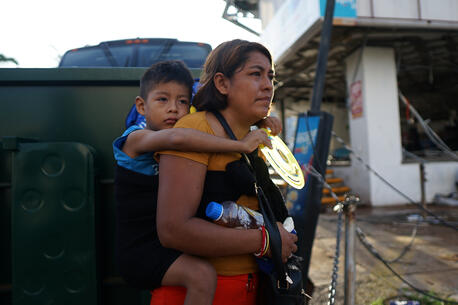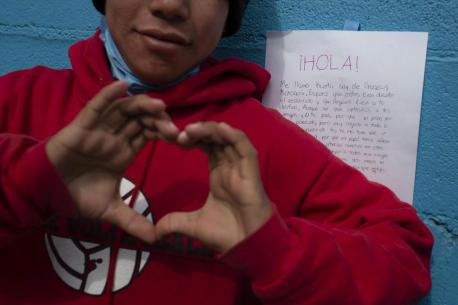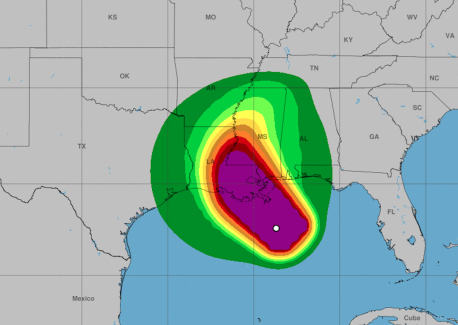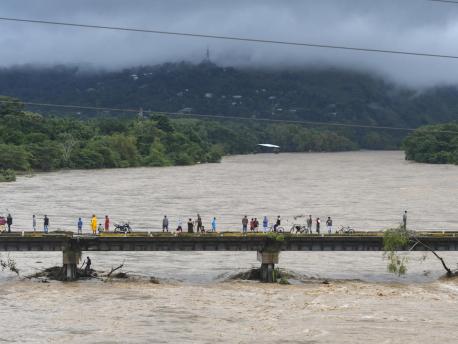
Families Take Shelter as Hurricane Eta Slams Nicaragua & Honduras
Hurricane Eta hit Nicaragua as a powerful Category 4 storm on Tuesday morning, November 3, bringing life-threatening storm surges, flooding and mudslides. Families in Nicaragua and Honduras have been evacuated to shelters, where they are waiting anxiously as the slow-moving storm lingers over the region. Eta is expected to head towards the U.S. Gulf Coast by this weekend.
UNICEF and partners in Nicaragua have prepositioned supplies and developed a joint response plan to meet the needs of those affected by the storm. This includes distributing hurricane relief to 10,000 people evacuated from Misikos and other high-risk areas along the northern coast.
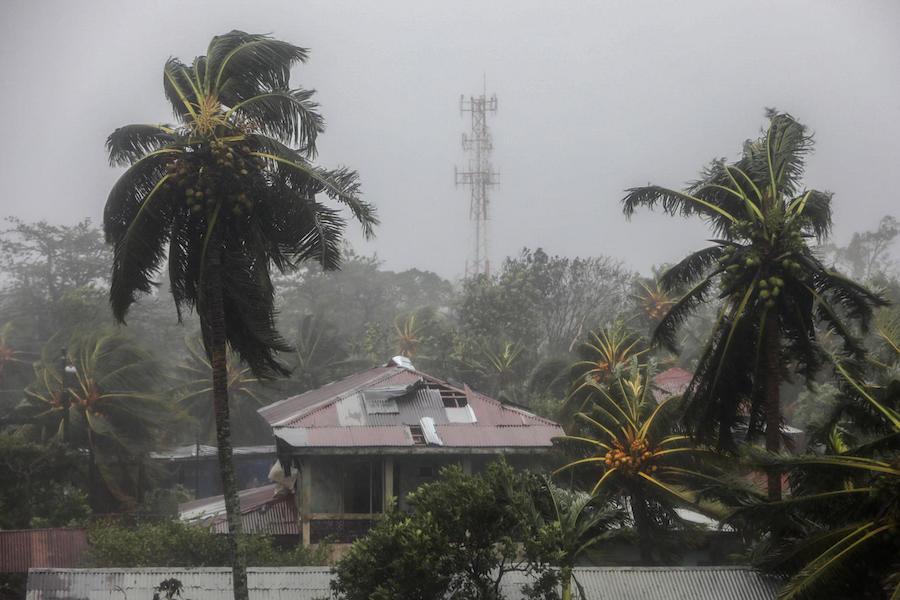
Roofs were blown off and trees toppled as the storm came ashore with maximum sustained winds near 140 miles per hour. Above, a view of a house under siege as Hurricane Eta makes landfall in Bilwi, Puerto Cabezas, Nicaragua, on November 3, 2020. © UNICEF/UN0359378/Ocon/AFP
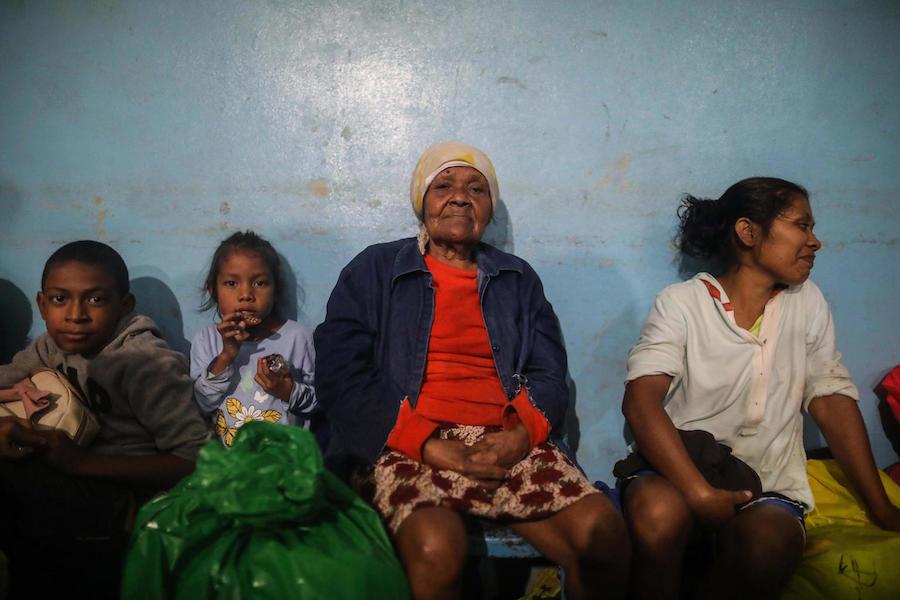
Families moved to shelters to wait out the storm and its aftermath. Above, families prepared for impact in a shelter in Bilwi, Puerto Cabezas, Nicaragua, on November 2, 2020. © UNICEF/UN0358880/Ocon/AFP
"As part of our planned response, UNICEF is working with the Government and our partners to reach children and families with urgently needed support," said Paolo Sassaro, UNICEF Deputy Representative in Nicaragua. "These efforts include providing water and hygiene supplies and disseminating risk and safety messaging to communities. We are also coordinating closely with authorities to ensure that shelters are suitable, safe and equipped with the necessary provisions for children."
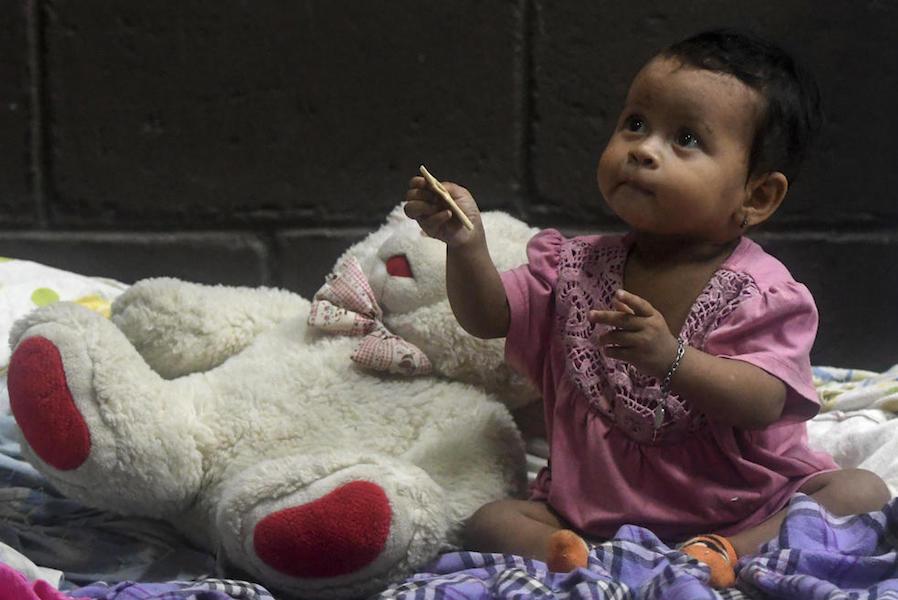
In Honduras, more than 1.5 million children are at risk due to the damage brought by Eta. "This is the worst storm Honduras has seen in decades. The damage will undoubtedly be significant,” said Mark Connolly, UNICEF Representative in Honduras. “Waterborne diseases are the first threat to children in these situations, so our first priority is to ensure that children have sufficient clean water and hygiene.”
UNICEF has prepositioned supplies for families, including 3,000 family hygiene kits, 3,000 water containers, 87 boxes of water disinfection tablets and 50 chlorine test kits for water quality monitoring (enough to make 12,000 tests). The supplies can reach 15,000 people, including 6,000 children. Above, a baby waits in a temporary shelter during heavy winds in Tela, northern Tegucigalpa, Honduras on November 3, 2020. © UNICEF/UN0359379/Sierra/AFP
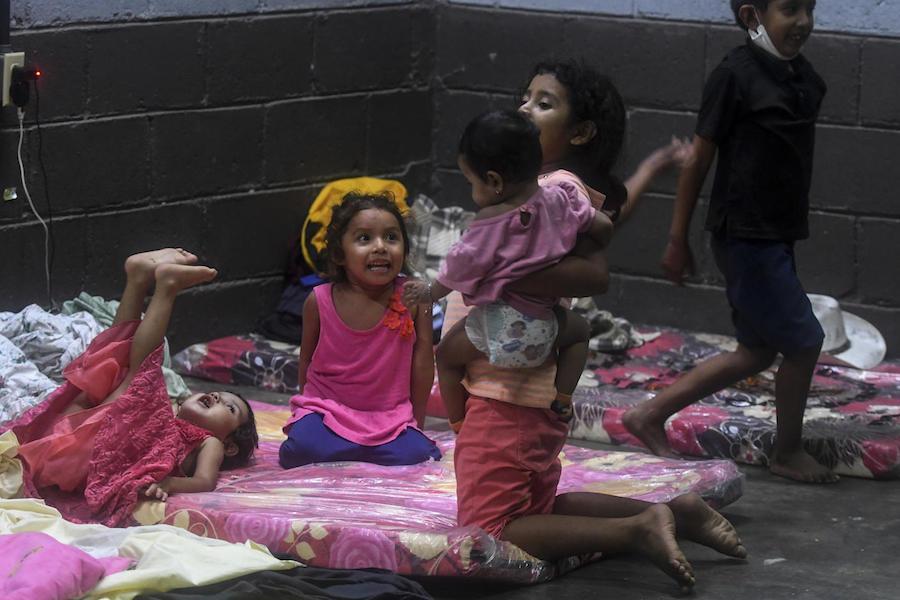
As of November 5, authorities in Honduras have reported two deaths, one a young girl who died when a house collapsed in San Pedro Sula. Heavy rains have caused flooding and landslides affecting 360,170 people; 2,776 people have been evacuated, 3,539 people are in shelters, and 200 people have been rescued. Above, children play in a temporary shelter as Hurricane Eta passed overhead in Tela, northern Tegucigalpa, Honduras on November 3, 2020. © UNICEF/UN0359381/Sierra/AFP
Top photo: People watch the Humuya River flooding due to heavy rains caused by Hurricane Eta, in Santa Rita, northern Tegucigalpa, Honduras on November 3, 2020. © UNICEF/UN0359380/Sierra/AFP
